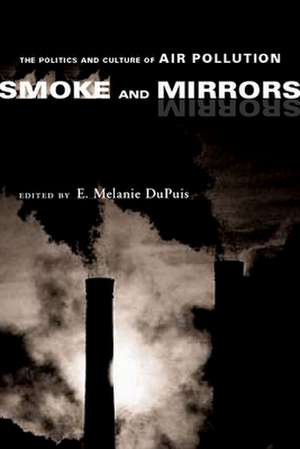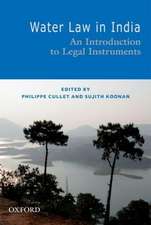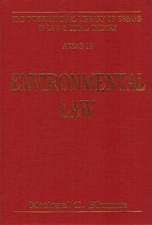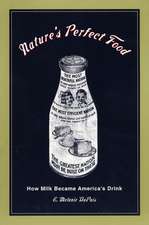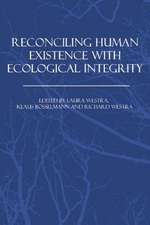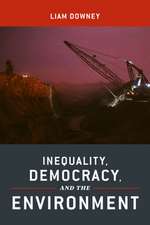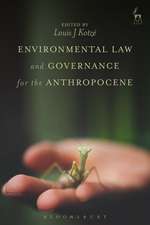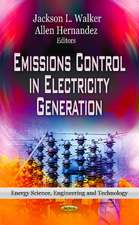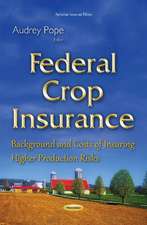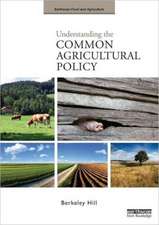Smoke and Mirrors – The Politics and Culture of Air Pollution
Autor E. Melanie Dupuisen Limba Engleză Paperback – 30 iun 2004
Graig Willse, City University of New York Who gets to breathe clean air? Who benefits from the cheaper products produced with dirty air? The answers, as the contributors to Smoke and Mirrors tell us, are sometimes as gray as the air itself. From the coal factory chimneys in Manchester in the late nineteenth century to the smog hanging over Los Angeles in the late twentieth century, air pollution has long been one of the greatest threats to our environment. In this important collection of original essays, the leading environmental scientists and social scientists examine the politics of air pollution policies and help us to understand the ways these policies have led to, idiosyncratic, effective, ineffective, and even disastrous choices about what we choose to put into and take out of the air. Offering historical, contemporary and cross-national perspectives, this volume provides a refreshing new approach to understanding how air pollution policies have evolved over time.
| Toate formatele și edițiile | Preț | Express |
|---|---|---|
| Paperback (1) | 245.49 lei 6-8 săpt. | |
| MI – New York University – 30 iun 2004 | 245.49 lei 6-8 săpt. | |
| Hardback (1) | 530.29 lei 6-8 săpt. | |
| Wiley – 30 iun 2004 | 530.29 lei 6-8 săpt. |
Preț: 245.49 lei
Nou
Puncte Express: 368
Preț estimativ în valută:
46.98€ • 48.68$ • 39.21£
46.98€ • 48.68$ • 39.21£
Carte tipărită la comandă
Livrare economică 21 martie-04 aprilie
Preluare comenzi: 021 569.72.76
Specificații
ISBN-13: 9780814719619
ISBN-10: 0814719619
Pagini: 360
Dimensiuni: 152 x 227 x 24 mm
Greutate: 0.5 kg
Ediția:New.
Editura: MI – New York University
ISBN-10: 0814719619
Pagini: 360
Dimensiuni: 152 x 227 x 24 mm
Greutate: 0.5 kg
Ediția:New.
Editura: MI – New York University
Recenzii
"Arguing the importance of the social dimensions of air pollution issues, this collection of 15 original essays addresses a wide range of topics ranging from the perception of the pollution in Victorian England to automotive pollution control in prewar Germany to pesticide drift in modern California. Several essays are provocative. well written, and richly detailed; others are vignettes." Choice "Given this ambitious study, air pollution can no longer be understood simply as an issue of economics, science, and engineering, but one that implicates fundamental values and controversies surrounding justice, fairness, and the construction of knowledge."
Gary Bryner, Brigham Young University "Informative and readable original essays."
Evergreen Monthly "Excellent introduction to the thorny interpretive issues that continue to grow around Jefferson's wall."The Journal of Southern History "On an evaluative note, the book is helpful for gaining an understanding of the historical context of Jefforsons metaphor.
Journal of Church and State "In the opinion of this reviewer, Dreisbach is undeniably correct. His research is thorough, and his analysis comports with the history of the period. Dreisbach's study of Jefferson's likely meaning when he utilized the phrase "wall of separation" makes a valuable contribution to an important area of the constitutional law, an area of great consequence to Christians. The fact that it is written by a law professor at a "top twenty" law school increases its significance and credibility in the scholar world. The book has a minimum of legal jargon and can easily be understood. Daniel Dreisbach's book is highly recommended."Faith and Mission "Daniel Dreisbach's book is a welcome and much needed addition to the scholarship on the First Amendment. Dreisbach analysis of Jefferson's metaphor, its political context, and consequences for church-state jurisprudence, provide an intellectual perspective as the Court and nation reconsider issues of accomodations of religion in the public square."Journal of Interdisciplinary Studies "The book plausibly argues that scholars have seen too secular a Jefferson."
Perspectives on Political Science "Dreisbach's new book makes an important contribution to church-state scholarship by elaborating both the circumstances surrounding Jefferson's original use of this metaphor and its introduction into modern constitutional discourse."
The Virginia Magazine "This is an excellent, eloquent book about a metaphor on the uses and pitfalls of metaphors in legal discourse, and on the meaning of the very brief words in the First Amendment."
Catholic Historical Review "Dreisbach argues convincingly that federalism constituted a key aspect of Jefferson's reply to the Danbury Baptists."
Journal of the Early Republic " Thomas Jefferson and the Wall of Separation is the product of Dreisbach's solid, extensive research, much of it hidden away in valuable notes. He writes in a direct, clear style, with hints of humor."
The Review of Politics "[A] vigorous critique of separationist dogmas"
Christianity Today "Both the sources themselves, and the extensive notes on the secondary literature make the book a 'must read' for anyone interested in the continued impact of Jefferson's metaphor upon the constitutional and legal interpretations of religion and its role in the contemporary United Sates."
Journal of the American Academy of Religion "Scholars recently have taken a new look at the historical foundations of the Establishment Clause. . . . Thomas Jefferson and the Wall of Separation between Church and State is a valuable contribution to that debate."
Harvard Journal of Law & Public Policy "Dreisbach offers an in-depth study into what Jefferson meant by the 'wall of separation between church and state' and claims that the extent of the wall was to prohibit Congress from establishing a national state church."
Conscience "Dreisbach examines the letter and its historical context and concludes that Jefferson might not agree with the restrictive way the courts today have interpreted his phrase."
Houston Chronicle "Now we know when secularists refer to Jefferson's "wall," they're speaking from ignorance. In short, they are advocating Black's wall
a wall of imprisonment and censorship, not Jefferson's, which was a wall of protection."
Citizen "Excellent . . . Dreisbach makes a persuasive case."
Catalyst "Thomas Jefferson and the Wall of Separation Between Church and State offers an in-depth examination of the origins, controversial uses, and competing interpretations of this powerful metaphor in law and public policy"
American Vision "Daniel L. Driesbach's Thomas Jefferson and the Wall of Separation Between Church and Stateprovides important historical analysis."
World "Daniel Dreisbach, a professor at American University, has now written a valuable history of the "wall of separation" metaphor...[a] superb book."
Claremont Review of Books "[This] book clearly explains that the purpose of the First Amendment's "establishment" clause was to leave the individual states free to decide for themselves how to integrate religion with government."
Chronicles "Dreisbach offers a fascinating and thorough account of Jefferson's understanding of the metaphor...and has provided the legal community with a valuable service in bringing together the documentary evidence for Jefferson's understanding of the "wall of separation," along with careful and transparent commentary on what the evidence means."
The Law and Politics Book Review
"Arguing the importance of the social dimensions of air pollution issues, this collection of 15 original essays addresses a wide range of topics ranging from the perception of the pollution in Victorian England to automotive pollution control in prewar Germany to pesticide drift in modern California. Several essays are provocative. well written, and richly detailed; others are vignettes." --Choice "Given this ambitious study, air pollution can no longer be understood simply as an issue of economics, science, and engineering, but one that implicates fundamental values and controversies surrounding justice, fairness, and the construction of knowledge." --Gary Bryner, Brigham Young University "Informative and readable original essays." --Evergreen Monthly "Excellent introduction to the thorny interpretive issues that continue to grow around Jefferson's wall."--The Journal of Southern History "On an evaluative note, the book is helpful for gaining an understanding of the historical context of Jefforson's metaphor." --Journal of Church and State "In the opinion of this reviewer, Dreisbach is undeniably correct. His research is thorough, and his analysis comports with the history of the period. Dreisbach's study of Jefferson's likely meaning when he utilized the phrase "wall of separation" makes a valuable contribution to an important area of the constitutional law, an area of great consequence to Christians. The fact that it is written by a law professor at a "top twenty" law school increases its significance and credibility in the scholar world. The book has a minimum of legal jargon and can easily be understood. Daniel Dreisbach's book is highly recommended."--Faith and Mission "Daniel Dreisbach's book is a welcome and much needed addition to the scholarship on the First Amendment. Dreisbach analysis of Jefferson's metaphor, its political context, and consequences for church-state jurisprudence, provide an intellectual perspective as the Court and nation reconsider issues of accomodations of religion in the public square."--Journal of Interdisciplinary Studies "The book plausibly argues that scholars have seen too secular a Jefferson." -- Perspectives on Political Science "Dreisbach's new book makes an important contribution to church-state scholarship by elaborating both the circumstances surrounding Jefferson's original use of this metaphor and its introduction into modern constitutional discourse." --The Virginia Magazine "This is an excellent, eloquent book about a metaphor on the uses and pitfalls of metaphors in legal discourse, and on the meaning of the very brief words in the First Amendment." --Catholic Historical Review "Dreisbach argues convincingly that federalism constituted a key aspect of Jefferson's reply to the Danbury Baptists." --Journal of the Early Republic " Thomas Jefferson and the Wall of Separation is the product of Dreisbach's solid, extensive research, much of it hidden away in valuable notes. He writes in a direct, clear style, with hints of humor." -- The Review of Politics "[A] vigorous critique of separationist dogmas" --Christianity Today "Both the sources themselves, and the extensive notes on the secondary literature make the book a 'must read' for anyone interested in the continued impact of Jefferson's metaphor upon the constitutional and legal interpretations of religion and its role in the contemporary United Sates." --Journal of the American Academy of Religion "Scholars recently have taken a new look at the historical foundations of the Establishment Clause... Thomas Jefferson and the Wall of Separation between Church and State is a valuable contribution to that debate." --Harvard Journal of Law & Public Policy "Dreisbach offers an in-depth study into what Jefferson meant by the 'wall of separation between church and state' and claims that the extent of the wall was to prohibit Congress from establishing a national state church." --Conscience "Dreisbach examines the letter and its historical context and concludes that Jefferson might not agree with the restrictive way the courts today have interpreted his phrase." --Houston Chronicle "Now we know when secularists refer to Jefferson's "wall," they're speaking from ignorance. In short, they are advocating Black's wall --a wall of imprisonment and censorship, not Jefferson's, which was a wall of protection." --Citizen "Excellent ... Dreisbach makes a persuasive case." --Catalyst "Thomas Jefferson and the Wall of Separation Between Church and State offers an in-depth examination of the origins, controversial uses, and competing interpretations of this powerful metaphor in law and public policy" --American Vision "Daniel L. Driesbach's Thomas Jefferson and the Wall of Separation Between Church and Stateprovides important historical analysis." --World "Daniel Dreisbach, a professor at American University, has now written a valuable history of the "wall of separation" metaphor...[a] superb book." --Claremont Review of Books "[This] book clearly explains that the purpose of the First Amendment's "establishment" clause was to leave the individual states free to decide for themselves how to integrate religion with government." --Chronicles "Dreisbach offers a fascinating and thorough account of Jefferson's understanding of the metaphor...and has provided the legal community with a valuable service in bringing together the documentary evidence for Jefferson's understanding of the "wall of separation," along with careful and transparent commentary on what the evidence means." --The Law and Politics Book Review
Gary Bryner, Brigham Young University "Informative and readable original essays."
Evergreen Monthly "Excellent introduction to the thorny interpretive issues that continue to grow around Jefferson's wall."The Journal of Southern History "On an evaluative note, the book is helpful for gaining an understanding of the historical context of Jefforsons metaphor.
Journal of Church and State "In the opinion of this reviewer, Dreisbach is undeniably correct. His research is thorough, and his analysis comports with the history of the period. Dreisbach's study of Jefferson's likely meaning when he utilized the phrase "wall of separation" makes a valuable contribution to an important area of the constitutional law, an area of great consequence to Christians. The fact that it is written by a law professor at a "top twenty" law school increases its significance and credibility in the scholar world. The book has a minimum of legal jargon and can easily be understood. Daniel Dreisbach's book is highly recommended."Faith and Mission "Daniel Dreisbach's book is a welcome and much needed addition to the scholarship on the First Amendment. Dreisbach analysis of Jefferson's metaphor, its political context, and consequences for church-state jurisprudence, provide an intellectual perspective as the Court and nation reconsider issues of accomodations of religion in the public square."Journal of Interdisciplinary Studies "The book plausibly argues that scholars have seen too secular a Jefferson."
Perspectives on Political Science "Dreisbach's new book makes an important contribution to church-state scholarship by elaborating both the circumstances surrounding Jefferson's original use of this metaphor and its introduction into modern constitutional discourse."
The Virginia Magazine "This is an excellent, eloquent book about a metaphor on the uses and pitfalls of metaphors in legal discourse, and on the meaning of the very brief words in the First Amendment."
Catholic Historical Review "Dreisbach argues convincingly that federalism constituted a key aspect of Jefferson's reply to the Danbury Baptists."
Journal of the Early Republic " Thomas Jefferson and the Wall of Separation is the product of Dreisbach's solid, extensive research, much of it hidden away in valuable notes. He writes in a direct, clear style, with hints of humor."
The Review of Politics "[A] vigorous critique of separationist dogmas"
Christianity Today "Both the sources themselves, and the extensive notes on the secondary literature make the book a 'must read' for anyone interested in the continued impact of Jefferson's metaphor upon the constitutional and legal interpretations of religion and its role in the contemporary United Sates."
Journal of the American Academy of Religion "Scholars recently have taken a new look at the historical foundations of the Establishment Clause. . . . Thomas Jefferson and the Wall of Separation between Church and State is a valuable contribution to that debate."
Harvard Journal of Law & Public Policy "Dreisbach offers an in-depth study into what Jefferson meant by the 'wall of separation between church and state' and claims that the extent of the wall was to prohibit Congress from establishing a national state church."
Conscience "Dreisbach examines the letter and its historical context and concludes that Jefferson might not agree with the restrictive way the courts today have interpreted his phrase."
Houston Chronicle "Now we know when secularists refer to Jefferson's "wall," they're speaking from ignorance. In short, they are advocating Black's wall
a wall of imprisonment and censorship, not Jefferson's, which was a wall of protection."
Citizen "Excellent . . . Dreisbach makes a persuasive case."
Catalyst "Thomas Jefferson and the Wall of Separation Between Church and State offers an in-depth examination of the origins, controversial uses, and competing interpretations of this powerful metaphor in law and public policy"
American Vision "Daniel L. Driesbach's Thomas Jefferson and the Wall of Separation Between Church and Stateprovides important historical analysis."
World "Daniel Dreisbach, a professor at American University, has now written a valuable history of the "wall of separation" metaphor...[a] superb book."
Claremont Review of Books "[This] book clearly explains that the purpose of the First Amendment's "establishment" clause was to leave the individual states free to decide for themselves how to integrate religion with government."
Chronicles "Dreisbach offers a fascinating and thorough account of Jefferson's understanding of the metaphor...and has provided the legal community with a valuable service in bringing together the documentary evidence for Jefferson's understanding of the "wall of separation," along with careful and transparent commentary on what the evidence means."
The Law and Politics Book Review
"Arguing the importance of the social dimensions of air pollution issues, this collection of 15 original essays addresses a wide range of topics ranging from the perception of the pollution in Victorian England to automotive pollution control in prewar Germany to pesticide drift in modern California. Several essays are provocative. well written, and richly detailed; others are vignettes." --Choice "Given this ambitious study, air pollution can no longer be understood simply as an issue of economics, science, and engineering, but one that implicates fundamental values and controversies surrounding justice, fairness, and the construction of knowledge." --Gary Bryner, Brigham Young University "Informative and readable original essays." --Evergreen Monthly "Excellent introduction to the thorny interpretive issues that continue to grow around Jefferson's wall."--The Journal of Southern History "On an evaluative note, the book is helpful for gaining an understanding of the historical context of Jefforson's metaphor." --Journal of Church and State "In the opinion of this reviewer, Dreisbach is undeniably correct. His research is thorough, and his analysis comports with the history of the period. Dreisbach's study of Jefferson's likely meaning when he utilized the phrase "wall of separation" makes a valuable contribution to an important area of the constitutional law, an area of great consequence to Christians. The fact that it is written by a law professor at a "top twenty" law school increases its significance and credibility in the scholar world. The book has a minimum of legal jargon and can easily be understood. Daniel Dreisbach's book is highly recommended."--Faith and Mission "Daniel Dreisbach's book is a welcome and much needed addition to the scholarship on the First Amendment. Dreisbach analysis of Jefferson's metaphor, its political context, and consequences for church-state jurisprudence, provide an intellectual perspective as the Court and nation reconsider issues of accomodations of religion in the public square."--Journal of Interdisciplinary Studies "The book plausibly argues that scholars have seen too secular a Jefferson." -- Perspectives on Political Science "Dreisbach's new book makes an important contribution to church-state scholarship by elaborating both the circumstances surrounding Jefferson's original use of this metaphor and its introduction into modern constitutional discourse." --The Virginia Magazine "This is an excellent, eloquent book about a metaphor on the uses and pitfalls of metaphors in legal discourse, and on the meaning of the very brief words in the First Amendment." --Catholic Historical Review "Dreisbach argues convincingly that federalism constituted a key aspect of Jefferson's reply to the Danbury Baptists." --Journal of the Early Republic " Thomas Jefferson and the Wall of Separation is the product of Dreisbach's solid, extensive research, much of it hidden away in valuable notes. He writes in a direct, clear style, with hints of humor." -- The Review of Politics "[A] vigorous critique of separationist dogmas" --Christianity Today "Both the sources themselves, and the extensive notes on the secondary literature make the book a 'must read' for anyone interested in the continued impact of Jefferson's metaphor upon the constitutional and legal interpretations of religion and its role in the contemporary United Sates." --Journal of the American Academy of Religion "Scholars recently have taken a new look at the historical foundations of the Establishment Clause... Thomas Jefferson and the Wall of Separation between Church and State is a valuable contribution to that debate." --Harvard Journal of Law & Public Policy "Dreisbach offers an in-depth study into what Jefferson meant by the 'wall of separation between church and state' and claims that the extent of the wall was to prohibit Congress from establishing a national state church." --Conscience "Dreisbach examines the letter and its historical context and concludes that Jefferson might not agree with the restrictive way the courts today have interpreted his phrase." --Houston Chronicle "Now we know when secularists refer to Jefferson's "wall," they're speaking from ignorance. In short, they are advocating Black's wall --a wall of imprisonment and censorship, not Jefferson's, which was a wall of protection." --Citizen "Excellent ... Dreisbach makes a persuasive case." --Catalyst "Thomas Jefferson and the Wall of Separation Between Church and State offers an in-depth examination of the origins, controversial uses, and competing interpretations of this powerful metaphor in law and public policy" --American Vision "Daniel L. Driesbach's Thomas Jefferson and the Wall of Separation Between Church and Stateprovides important historical analysis." --World "Daniel Dreisbach, a professor at American University, has now written a valuable history of the "wall of separation" metaphor...[a] superb book." --Claremont Review of Books "[This] book clearly explains that the purpose of the First Amendment's "establishment" clause was to leave the individual states free to decide for themselves how to integrate religion with government." --Chronicles "Dreisbach offers a fascinating and thorough account of Jefferson's understanding of the metaphor...and has provided the legal community with a valuable service in bringing together the documentary evidence for Jefferson's understanding of the "wall of separation," along with careful and transparent commentary on what the evidence means." --The Law and Politics Book Review
